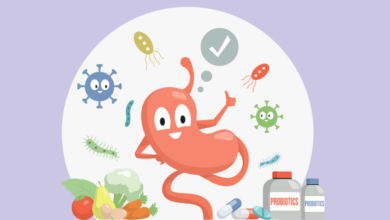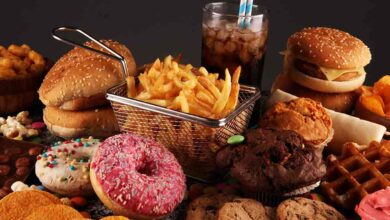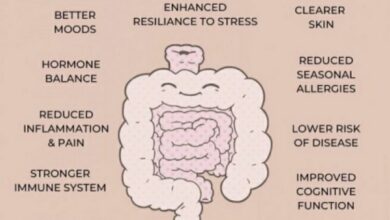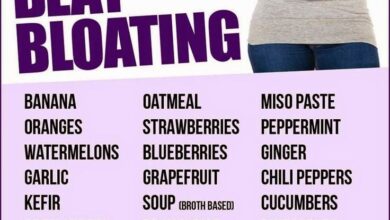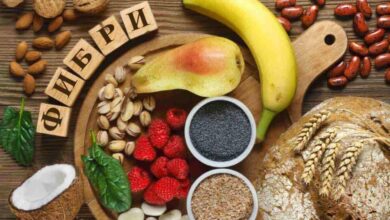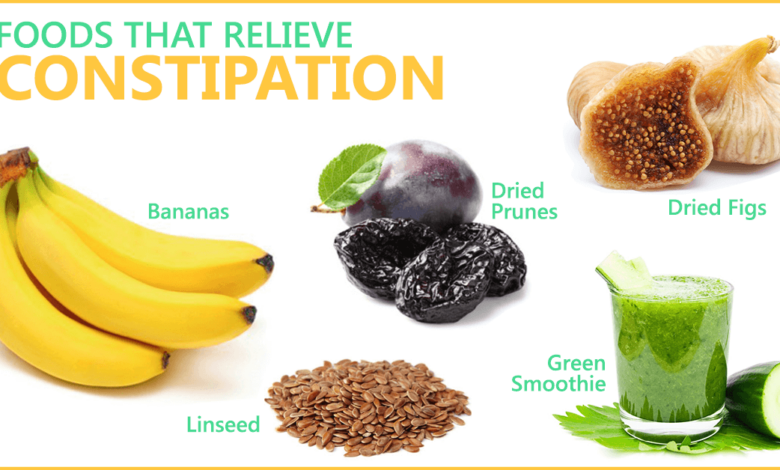
RD Approved Foods to Relieve Constipation: A Guide to Natural Relief
RD Approved Foods to Relieve Constipation: Ever felt like your digestive system is in a standstill? Constipation is a common issue, but it doesn’t have to be a constant struggle. We’re diving into the world of fiber-rich foods that can naturally ease constipation and get your gut back on track.
From understanding the root causes of constipation to incorporating simple dietary changes, this guide will equip you with the knowledge and tools to find relief. We’ll explore the role of fiber, the benefits of various RD-approved foods, and practical tips to make these changes sustainable.
Understanding Constipation
Constipation is a common digestive problem that affects many people. It occurs when bowel movements become infrequent or difficult to pass. This can lead to discomfort, pain, and bloating.
Causes of Constipation
Constipation can be caused by a variety of factors, including:
- Dietary factors:A diet low in fiber can contribute to constipation. Fiber helps to add bulk to stool, making it easier to pass.
- Lack of physical activity:Regular exercise helps to stimulate bowel movements.
- Medications:Certain medications, such as pain relievers, antidepressants, and iron supplements, can cause constipation as a side effect.
- Medical conditions:Conditions such as irritable bowel syndrome (IBS), diabetes, and hypothyroidism can also contribute to constipation.
- Dehydration:Drinking insufficient fluids can make stool harder to pass.
- Ignoring the urge to defecate:Holding back when you need to go to the bathroom can make constipation worse.
The Role of Fiber in Digestion
Fiber is an essential part of a healthy diet. It is a type of carbohydrate that the body cannot digest. Fiber helps to add bulk to stool, making it easier to pass through the digestive system. There are two types of fiber: soluble and insoluble.
- Soluble fiberdissolves in water and forms a gel-like substance in the gut. It helps to slow down digestion and can lower cholesterol levels. Examples of soluble fiber include oats, beans, and lentils.
- Insoluble fiberdoes not dissolve in water. It adds bulk to stool and helps to move food through the digestive system. Examples of insoluble fiber include wheat bran, vegetables, and nuts.
A diet rich in both soluble and insoluble fiber is important for maintaining regular bowel movements.
Acute vs. Chronic Constipation
Constipation can be classified as either acute or chronic.
- Acute constipationis a sudden onset of constipation that lasts for a short period of time. It is often caused by a change in diet, travel, or medication.
- Chronic constipationis a long-term condition that lasts for several weeks or months. It can be caused by underlying medical conditions, lifestyle factors, or medication.
RD-Approved Foods for Relief: Rd Approved Foods To Relieve Constipation
Constipation is a common problem, and making dietary changes can be a key part of managing it. Registered Dietitians (RDs) are experts in nutrition and can provide personalized advice on how to use food to relieve constipation.
Foods High in Fiber
High-fiber foods are essential for digestive health, as they add bulk to stool and make it easier to pass. Aim for 25-35 grams of fiber per day.
- Fruits:Fruits like pears, apples, berries, and oranges are good sources of fiber. Pears, especially, contain a type of fiber called pectin, which helps to soften stool.
- Vegetables:Broccoli, Brussels sprouts, carrots, and leafy greens are excellent sources of fiber.
- Legumes:Beans, lentils, and peas are high in fiber and protein. They also contain resistant starch, which acts as a prebiotic, feeding the good bacteria in your gut.
- Whole Grains:Choose whole-grain breads, cereals, pasta, and brown rice over refined grains. Whole grains are rich in fiber and other nutrients.
- Nuts and Seeds:Almonds, walnuts, chia seeds, and flaxseeds are good sources of fiber and healthy fats.
Foods That Promote Hydration
Staying hydrated is crucial for preventing and relieving constipation. Aim for 8 glasses of water per day.
- Water:Plain water is the best choice for hydration.
- Herbal Teas:Chamomile, peppermint, and ginger tea can aid digestion and promote hydration.
- Fruit Juices:Diluted fruit juices, such as apple juice or prune juice, can also help.
- Broth:Chicken broth or vegetable broth can be hydrating and soothing.
Foods Rich in Electrolytes
Electrolytes, like potassium and magnesium, are important for maintaining fluid balance in the body.
- Bananas:Bananas are a good source of potassium.
- Avocados:Avocados are rich in potassium and fiber.
- Dark Leafy Greens:Spinach, kale, and collard greens are good sources of magnesium.
- Coconut Water:Coconut water is a natural source of electrolytes.
Incorporating Foods into a Diet
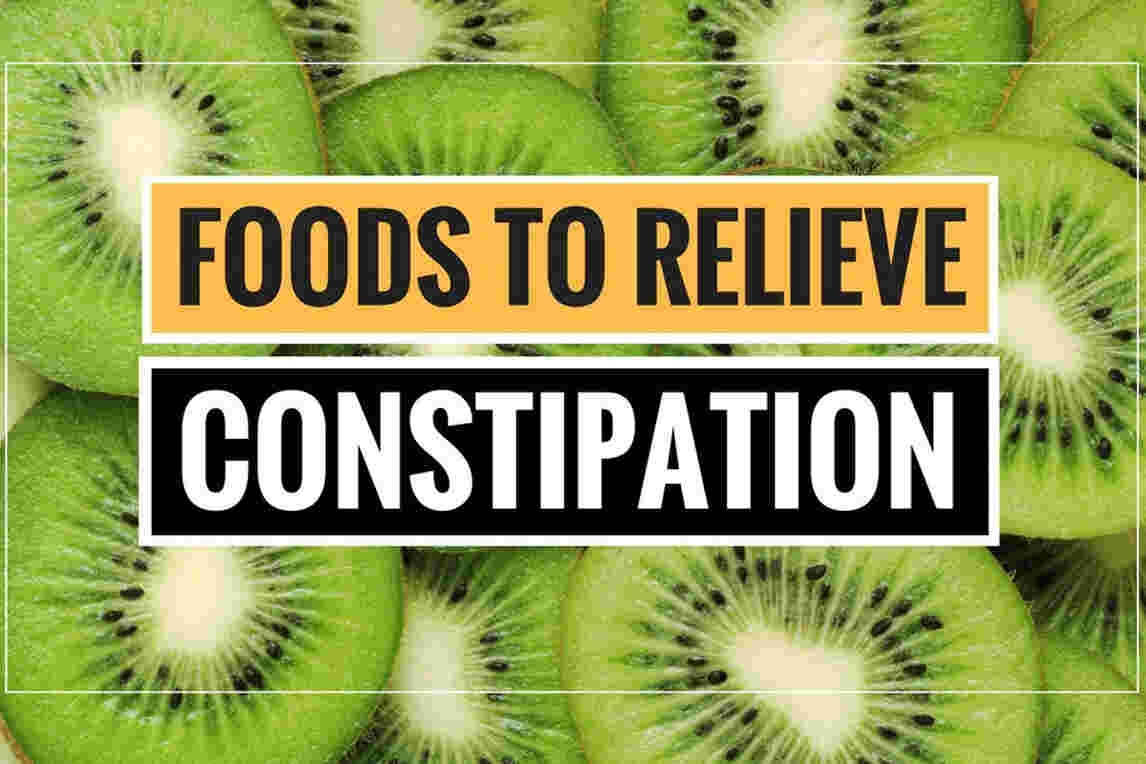
Now that you understand the importance of fiber and hydration, let’s explore how to incorporate these elements into your daily meals. It’s crucial to remember that introducing fiber gradually is key to avoiding discomfort.
Sample Meal Plan
A sample meal plan incorporating RD-approved foods for constipation relief can look like this: Breakfast:
- Oatmeal with berries and flax seeds
- Whole-wheat toast with avocado and a poached egg
- Yogurt with granola and fruit
Lunch:
- Lentil soup with a side of whole-wheat bread
- Salad with grilled chicken or tofu, chickpeas, and a vinaigrette dressing
- Quinoa bowl with roasted vegetables and a tahini dressing
Dinner:
- Salmon with roasted sweet potatoes and steamed broccoli
- Veggie burger on a whole-wheat bun with a side of salad
- Chickpea curry with brown rice
Snacks:
Finding relief from constipation can be tricky, but incorporating RD-approved foods like chia seeds and flaxseed into your diet can make a big difference. And while you’re focusing on gut health, don’t forget about your kitchen! A Dutch oven is a versatile tool for cooking delicious meals, and you can find tons of inspiration for amazing things to do with a dutch oven.
From hearty stews to flavorful breads, you can whip up healthy and comforting dishes that support your overall well-being. So, why not try a new recipe tonight? A healthy gut and a delicious meal are the perfect recipe for a happy you!
- Fruits like apples, pears, and bananas
- Trail mix with nuts, seeds, and dried fruit
- Yogurt with berries
Gradual Increase of Fiber Intake
To avoid discomfort, gradually increase your fiber intake over a few days or weeks. Here are some tips:* Start small:Begin by adding one or two servings of high-fiber foods to your daily diet.
Listen to your body
Dealing with constipation? It’s common, but it doesn’t have to be a constant struggle. Registered dietitians recommend incorporating fiber-rich foods like chia seeds, flaxseed, and prunes into your diet for natural relief. But remember, a positive mindset is key to any health journey, and that includes your relationship with food.
Shifting your self-talk around food can make a huge difference in your overall well-being. Check out these positive ways to shift your self talk around food to support a healthy and positive relationship with your body. With a little effort and a positive attitude, you can find relief from constipation and enjoy a healthier, happier you!
Finding RD-approved foods to relieve constipation is crucial, especially for athletes who often experience digestive issues due to intense training. A plant-based diet can be beneficial for athletes, but it’s important to weigh the pros and cons before making a drastic change.
Ensuring adequate fiber intake, particularly from high-fiber fruits, vegetables, and whole grains, is key for preventing constipation and maintaining gut health, regardless of dietary choices.
Drink plenty of water Adequate hydration is essential for fiber to work effectively.
Choose whole grains Opt for whole-wheat bread, pasta, and rice over refined grains.
Include fruits and vegetables Aim for at least five servings of fruits and vegetables per day.
Hydration for Easing Constipation, Rd approved foods to relieve constipation
Water plays a vital role in easing constipation. It helps to soften stools and make them easier to pass. Here’s how to ensure you’re adequately hydrated:* Drink water throughout the day:Aim for at least eight glasses of water per day.
Carry a water bottle with you This will encourage you to stay hydrated throughout the day.
Choose water over sugary drinks Sodas and juices can dehydrate you.
Include water-rich fruits and vegetables Watermelon, cucumbers, and spinach are excellent sources of hydration.
Additional Considerations
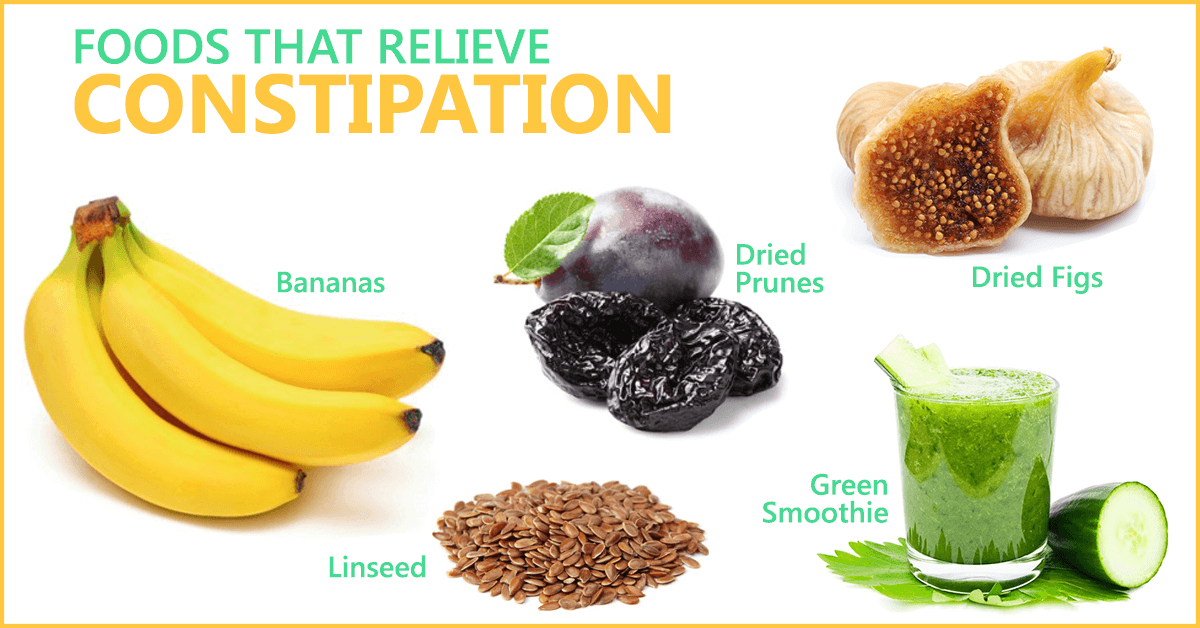
While dietary changes play a significant role in managing constipation, it’s crucial to recognize that a holistic approach is often necessary. Incorporating lifestyle modifications, such as regular exercise and considering the role of probiotics, can further enhance digestive health and promote regularity.
The Benefits of Exercise for Digestion
Regular physical activity is an essential component of overall well-being, and it plays a vital role in maintaining a healthy digestive system. Exercise stimulates muscle contractions in the digestive tract, promoting the movement of food and waste through the intestines.
- Increased Gut Motility:Exercise increases blood flow to the digestive system, which helps to stimulate muscle contractions, known as peristalsis. This enhanced gut motility promotes the movement of food and waste through the intestines, preventing constipation.
- Improved Digestion and Nutrient Absorption:Exercise can improve digestion by enhancing the release of digestive juices and enzymes. This leads to better nutrient absorption and utilization, further supporting overall health.
- Reduced Stress Levels:Exercise is a well-known stress reliever, and chronic stress can negatively impact digestive health. By reducing stress, exercise can contribute to a more balanced and efficient digestive system.
Probiotics and Their Potential Benefits
Probiotics are live microorganisms that, when consumed in adequate amounts, provide health benefits to the host. They are often referred to as “good bacteria” and are naturally found in fermented foods like yogurt, sauerkraut, and kimchi. Probiotics play a crucial role in maintaining a balanced gut microbiome, which is essential for optimal digestion and overall health.
- Improved Gut Microbiome:Probiotics introduce beneficial bacteria to the gut, helping to restore a healthy balance of microorganisms. This balanced gut microbiome is essential for proper digestion, nutrient absorption, and immune function.
- Potential Relief from Constipation:Studies suggest that probiotics may help relieve constipation by promoting regular bowel movements. They can increase the frequency of bowel movements and improve stool consistency.
- Enhanced Digestion and Nutrient Absorption:Probiotics can improve digestion by aiding in the breakdown of food and the absorption of nutrients. They can also help reduce bloating and gas.
Seeking Professional Guidance
While dietary changes and lifestyle modifications can be effective in managing constipation, it’s important to seek professional guidance from a registered dietitian (RD) if you’re experiencing persistent or severe constipation.
- Personalized Recommendations:An RD can assess your individual needs and provide personalized recommendations based on your medical history, dietary habits, and lifestyle factors. They can help you develop a tailored dietary plan and provide guidance on appropriate supplements or medications.
- Underlying Medical Conditions:Constipation can sometimes be a symptom of an underlying medical condition, such as irritable bowel syndrome (IBS), celiac disease, or thyroid disorders. An RD can help identify any potential underlying causes and recommend appropriate interventions.
- Addressing Nutritional Deficiencies:Constipation can sometimes be linked to nutritional deficiencies, such as a lack of fiber or fluid intake. An RD can assess your nutritional status and recommend dietary changes or supplements to address any deficiencies.
Last Point
By incorporating these RD-approved foods into your diet, you can gently encourage regular bowel movements and enjoy a healthier, more comfortable digestive experience. Remember, hydration is key, and regular exercise can also contribute to digestive health. If your constipation persists, don’t hesitate to consult a registered dietitian for personalized guidance.

